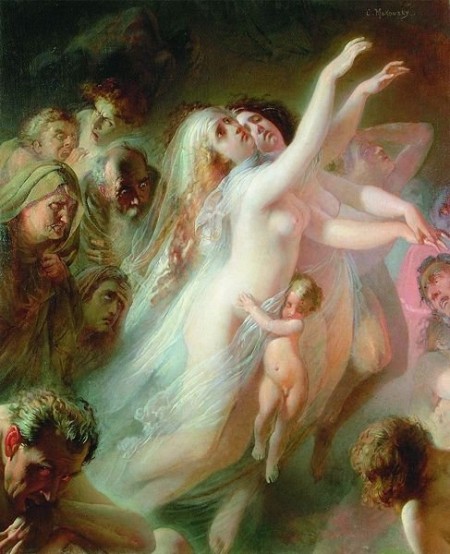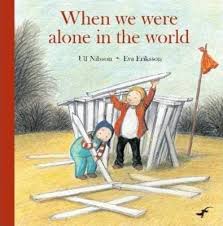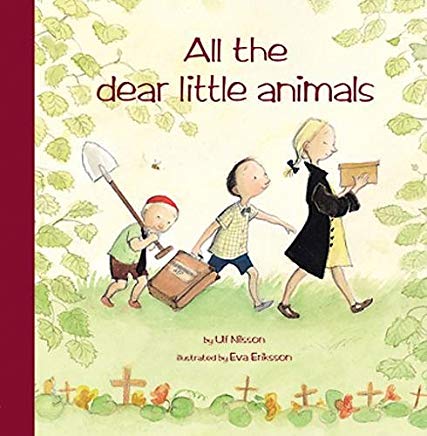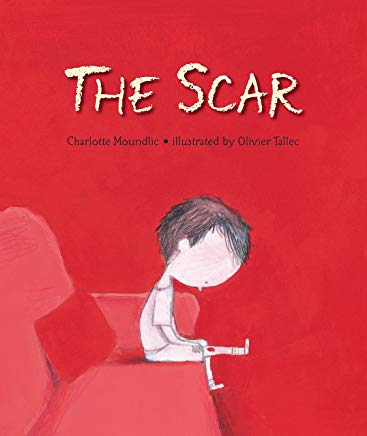The Blog
Blog Entry
Knock Knock. Who’s There?

Sometimes it seems the only European picture books that make it to our shores are the ones which deal explicitly with death. You would be forgiven then for concluding they are obsessed with it, and probably wouldn’t bother reading to their children unless there wasn’t at least the risk of someone getting hit by a truck, although I think this is rather a reflection of our risk aversion here. It’s almost like we’ve farmed this subject out. If something does well in the bushes, wins readers, gold medals, important-sounding blurbs, and is meanwhile proven over a period of four or five years not to have been the cause of any epidemic traumas among the native population – only then does it stand a chance of being translated. Enchanted Lion, Candlewick, Gecko Press – there are a couple of people in corner offices somewhere regularly doing the right thing, but I’m not sure we should be falling all over ourselves at their boldness.
Gecko works out of New Zealand of all places, so happening upon one of their books where I live is a little like flying from Atlanta to Washington and having to stop over in Chicago. Oh well. Their All the Dear Little Animals, by the Swedish collaborators Ulf Nilsson and Eva Eriksson, was such a welcome bolt from the heavens a couple of weeks ago, I went looking through the sprawling virtual network that is my local library for anything else these two had touched (no luck), before finally taking my chances with Amazon so you don’t have to.
Because their When We Were Alone in the World turns out to be certainly worth a couple of bucks. In it, a little boy comes home from school (early, it turns out), finds the door locked with nobody answering, and naturally assumes his parents have been hit by that truck, probably from reading too many Scandinavian picture books. (Not for nothing, but remember Roald Dahl once killed off some parents with a rampaging rhinoceros escaped from the zoo.) As it happens, this sort of runaway imagination also comes with super powers: the boy heroically liberates his toddler brother from “playschool,” builds another house where they can live - at least until college - complete with mossy blankets and a television fashioned from a cardboard box that doesn’t presumably work because the batteries are dead. “Anyway there’s nothing good on TV these days,” he shrugs pragmatically, before deciding to make a cake for his brother with ingredients borrowed from a neighbor.
This brush with death may last only a few hours, though it is never patronizing, and furthermore a visceral reminder of how anyone’s emotions can sometimes race ahead of them, to the point where you kind of start to wonder, yourself: “Um, so where are the parents, anyway?” Everything’s possible.
In The Scar, there’s no such wondering:
“Mom died this morning,” writes Charlotte Moundlic in the voice of a boy lying flat on his back, and staring at an airplane mobile twirling above his bed. “It wasn’t really this morning. Dad said she died during the night, but I was sleeping during the night. For me, she died this morning.”
So yeah. I looked for this book, without knowing, because I liked its French illustrator, Olivier Tallec, from the Big Wolf and Little Wolf books, and there’s more anger here, and incomprehension, and denial than I had probably bargained for, still to be able to find a book this candid on the subject strikes me an essential opportunity for a very small minority of American readers, and probably an opportunity for anyone making their books. We were honestly split in my house on the merits: three of us thought this book was outstanding, though for me it was only okay. “But where’s the story?” I asked, remembering those daring, searching kids and their short-lived funeral business in All the Dear Little Animals, but then I’ve seen death from a lot of privileged angles in the last month, and have probably grown spoiled. Everyone should be so lucky.



